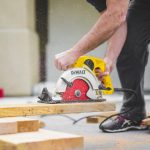RECOURSE AGAINST THE INSPECTOR
Which inspector may provide a pre-inspection report?
Many individuals present themselves as inspectors providing services for inspection of homes including detailed reports.
Some are governed by their professional orders such as engineers, architects, experts in structural building or entrepreneurs with RBQ licenses.
Moreover, many inspectors may be licensed by the Association of building inspectors while others may not be governed by any professional or licensed designation which does not hold them accountable to any ethical obligations or rules.
The pre-inspection report and agreement is generally service contract that obliges the inspector who renders a service to a client after examination of the property in question.
Is it necessary to do a pre-inspection or expertise?
A pre-inspection prior to the purchase is always recommended but still remains optional at the discretion of the buyer.
In the event that you decide not to inspect the property in question could be assimilated to the lack of prudence and diligence on the part of the buyer.
It would be prudent for a buyer to have recourse to a pre-inspection or expertise if the property is located in a problematic area regarding the soil or known problems with the foundation and/or the property of a certain age (ie historical age or over 50 years old).
Consequently, the buyer cannot close his eyes on a potential problem or issue or indications of a possible apparent defect.
The disclosure of the seller of certain problems or issues in the past that were remedied and repaired should incite the buyer to proceed with a pre-inspection to ensure that the issues and defects were in fact remedied correctly and appropriately.
This being said, each case must be evaluated and based on its merits.
What is the responsibility of the inspector regarding the pre-inspection report?
The inspector has the obligation of diligence and prudence and reasonableness (‘’moyen’’) comparing it to a diligent and prudent inspector placed in the same circumstances rather than an obligation of result.
Recourse against the inspector before the courts
In order for the buyer to succeed and prove a latent defect, it is customary that the examination of the property including a pre-inspection report did not reveal a defect.
Therefore, no reproach or recourse may be made against the inspector.
To the contrary, if proof and evidence shows that the inspection did not follow the industry standards and the rules of conduct (“règles de l’art”), the recourse against the seller should drop and the recourse against the inspector should prevail as the defect should have been qualified as apparent rather than latent.
If the inspector reveals signs of a potential defect, the inspector has the obligation to make a more profound examination. If he does not, the buyer supports the consequences as the defect becomes apparent due to the fault of the inspector[1].
The Buyer would then have contractual recourse against the inspector.
However, when the buyer sues the inspector as well as the seller of the property, the buyer would be deprived of the counsel and expertise of the inspector to aid his legal case against the seller.
Consequently, it is the obligation of the inspector to outline the potential issues and defects to his/her client and advise him/her of the consequences and to suggest to him/her to push his reflection further with the use of a more specialized expert in the filed (ie expert in foundation, expert in pyrite or soil or expert in plumbing or electrical etc.).
The mere suggestion that the inspector makes to survey a problem rather than have recourse to a specialist or expert in the field would be considered insufficient if the defect presents a certain gravity or risk[2].
It is the obligation of the buyer to read the inspection report carefully and pursue the recommendations by the inspector.
If the buyer does not follow the recommendations by the inspector to verify and validate the quality of certain issues or defects, it may receive the opposition from the seller that he/she had knowledge of the defect but ignored said facts of a defect[3].
Each case would need to be evaluated and based on its merits.
[1] Rondeau c. Roy 2006 QCCQ 4223
[2] Cyr c. Conseillers en systèmes d’information et en gestion CGI inc., 2010 QCCQ 114
[3] Picard c. Guy 2007 QCCQ 317
If you are looking for a law firm with reasonable rates, quick and efficient turnaround time for your files and who provides personalized and effective follow-ups, call Schneider Attorneys at (514) 439-1322 ext. 112 or email us at client@schneiderlegal.com
The above noted text should not be construed as providing legal advice or a statement of your claim. The process highlighted above are merely parameters and barometers and do not constitute any warranties and guaranties with regards to your file at hand. We strongly recommend that you seek legal advice with a licensed attorney from the Barreau du Quebec or a notary at the Chambre des Notaires. Each case must be seen and analysed on its merits as the legal process may be complex and cumbersome.





